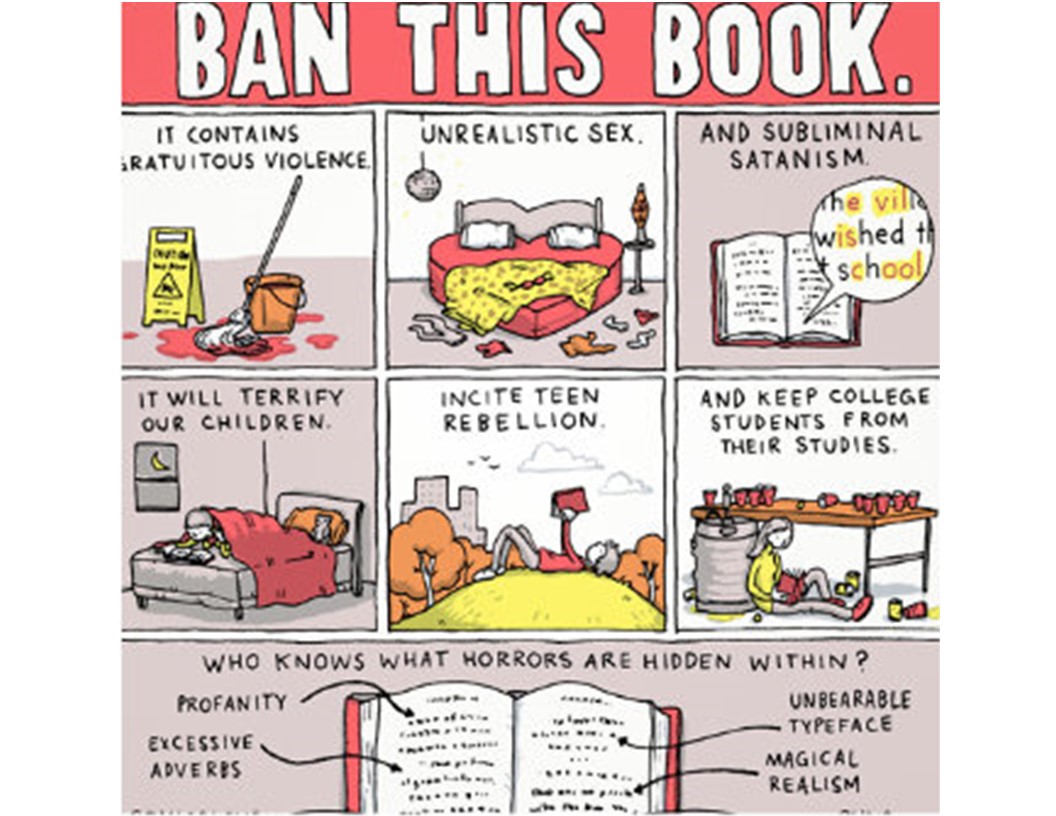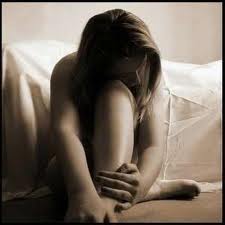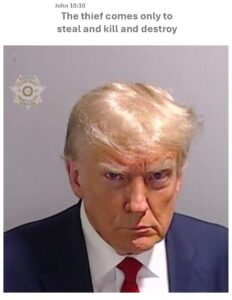As many of us know, the people who make the most noise, get more of a hearing, and usually they are a minority. This is also the case regarding banning books that offend a small minority of Americans. Let’s be informed that it’s not just a call from the lunatic fringe, representing extreme views. It’s a political movement wanting to achieve a minority purpose, a cause that is flush with big money.
Christopher Rufo, a right-wing provocateur, who helped instigate the panics against “critical race theory” and L.G.B.T.Q. ideas and educators, openly says that he hopes to destroy public education in the United States. That coincides with right-wing goals pushed by the Republican Party over the last generation or more, centered on privatizing education.
And it is deeper than that. It has a social and economic base – and cause. The proposals to ban books relates to a national cause financed by deep pockets, people who fear a progressive multi-ethnic sway. It is rooted in power and control. It reoccurs in our history.
We had it before with the practice of slavery, McCarthyism, and the Red Scare. The current movement is beyond the lunatic fringe and a defense of ideas. It encompasses a great deal of money and a whole political party pushing white power comfort.
It is not just an attack on individual teachers or schools, it is an assault on the very idea of public education. Republicans, as agents of the corporate rich, war against threats to the power and control of the plutocratic establishment which finances their campaigns and control.
Government by the people and its programs to advance the democratic majority are that threat. An open independent media is that threat. Public education under the control of the people is a threat. Public goods of all kinds are a threat. Collective responsibility is a threat.
It is part of the Republican outcry of individual freedom which overrules common good. Vaccination and mask mandates be damned. Public health, especially the health of the nonwhite masses, can never overrule the rights of an individual. Death and risk are to be borne in the name of freedom.
And ideas and books which challenge white orthodoxy and foster multi-ethnic thinking are taboo for Republicans and the corporate agenda which wants your money not your thinking.
Government, ideas, and open media that function for the common good — the public realm is to be avoided. Public goods and collective responsibility are to be avoided, all on behalf of hierarchy and the capital that finances it.
_____________________________________________________________________________________________________________________________
American Library Association Tracked 10 Most Challenged Books of 2021, most by or about Black or LGBTQIA persons.
1. “Gender Queer,” by Maia Kobabe
Reasons: Banned, challenged, and restricted for LGBTQIA+ content and because it was considered to have sexually explicit images.
2. “Lawn Boy,” by Jonathan Evison
Reasons: Banned and challenged for LGBTQIA+ content and because it was considered to be sexually explicit.
3. “All Boys Aren’t Blue,” by George M. Johnson
Reasons: Banned and challenged for LGBTQIA+ content, profanity, and because it was considered to be sexually explicit.
4. “Out of Darkness,” by Ashley Hope Perez
Reasons: Banned, challenged, and restricted for depictions of abuse and because it was considered to be sexually explicit.
5. “The Hate U Give,” by Angie Thomas
Reasons: Banned and challenged for profanity, violence, and because it was thought to promote an anti-police message and indoctrination of a social agenda.
6. “The Absolutely True Diary of a Part-Time Indian,” by Sherman Alexie
Reasons: Banned and challenged for profanity, sexual references and use of a derogatory term.
7. “Me and Earl and the Dying Girl,” by Jesse Andrews
Reasons: Banned and challenged because it was considered sexually explicit and degrading to women.
8. “The Bluest Eye,” by Toni Morrison
Reasons: Banned and challenged because it depicts child sexual abuse and was considered sexually explicit.
9. “This Book is Gay,” by Juno Dawson
Reasons: Banned, challenged, relocated, and restricted for providing sexual education and LGBTQIA+ content.
10. “Beyond Magenta,” by Susan Kuklin
Reasons: Banned and challenged for LGBTQIA+ content and because it was considered to be sexually explicit.
Polling Regarding Public Opinions
Recent polling shows that seven in 10 voters oppose efforts to remove books from public libraries, including majorities of voters across party lines. Three-quarters of parents of public-school children (74%) express a high degree of confidence in school librarians to make good decisions about which books to make available to children, and when asked about specific types of books that have been a focus of local debates, large majorities say for each that they should be available in school libraries on an age-appropriate basis.




